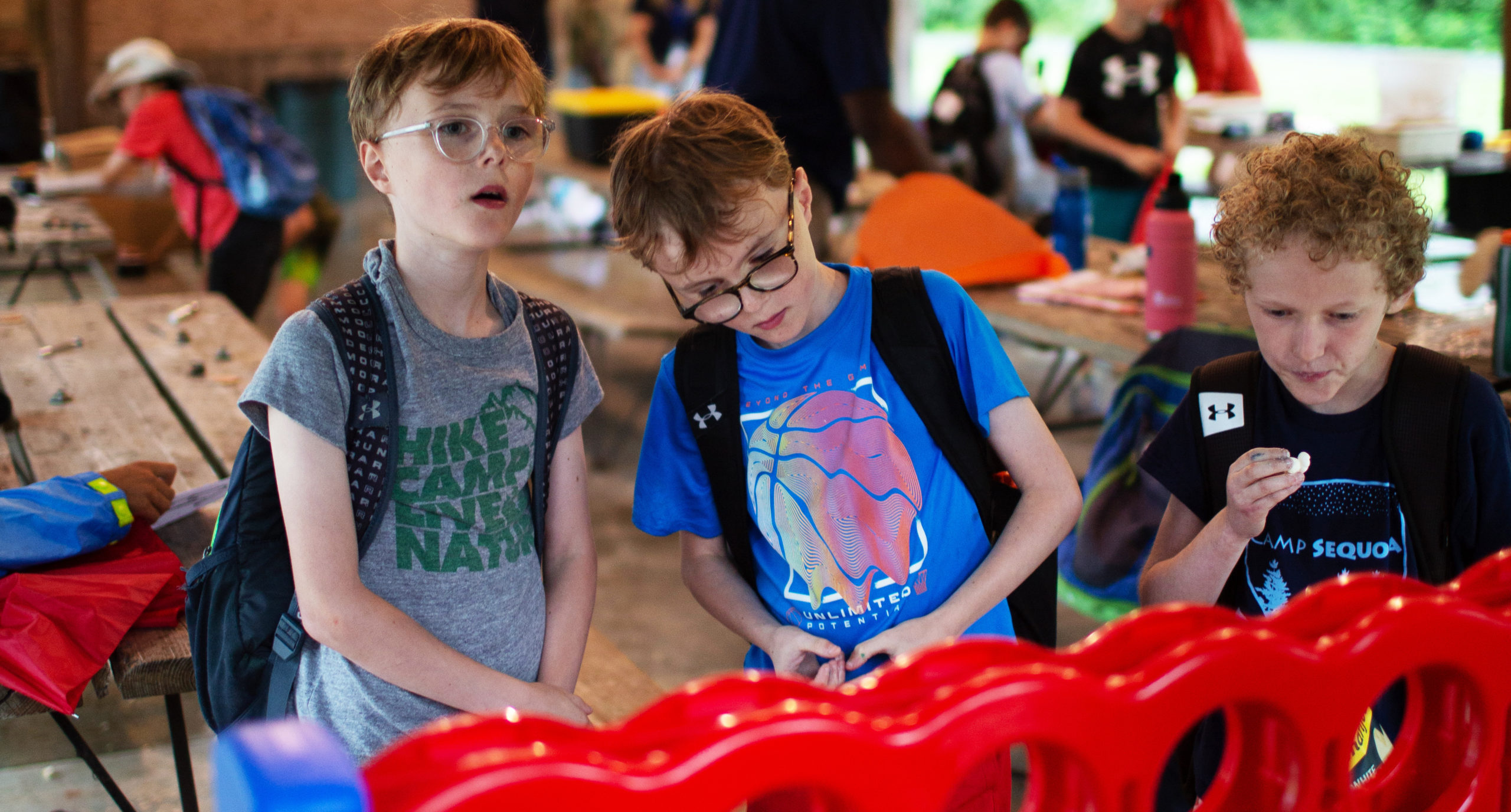

Introduction
Frustration tolerance is a crucial aspect of emotional regulation and resilience, especially for individuals with Attention Deficit Hyperactivity Disorder (ADHD) and other neurodivergent conditions. This article explores the challenges neurodiverse students face in managing frustration and presents evidence-based strategies to enhance frustration tolerance, promoting academic and social success. It’s important to note that individual experiences vary, and a tailored approach is essential for supporting the unique needs of each student. Director Lux has spoken about frustration tolerance and the exceptional mind at local, regional and global conferences and is providing this overview as a resource to our greater Camp Sequoia community.
Understanding Frustration Tolerance in Neurodivergent Students
The Impact of Neurodivergence on Frustration Tolerance:
-
- Neurodivergent individuals, including those with ADHD, often encounter challenges in emotional regulation and frustration tolerance (Barkley, 2015).
- Factors such as executive function deficits, sensory sensitivities, and social difficulties contribute to the heightened experience of frustration in academic and social contexts.
The Interplay of ADHD and Frustration:
-
- ADHD is characterized by difficulties in attention, impulse control, and hyperactivity.
- Challenges in sustained attention and impulse regulation can contribute to frustration, particularly in tasks requiring focus and organization (Barkley, 2015).
Strategies for Enhancing Frustration Tolerance
Mindfulness and Relaxation Techniques:
Mindful Breathing:
-
-
- Teaching neurodivergent students mindful breathing exercises can help regulate emotions and manage frustration (Zylowska et al., 2008).
- Encouraging short mindfulness breaks during the day can foster emotional balance.
-
Progressive Muscle Relaxation (PMR):
-
-
- PMR involves tensing and relaxing different muscle groups, promoting physical and mental relaxation.
- Regular practice can enhance overall emotional well-being and resilience (Bernstein & Borkovec, 1973).
-
Executive Function Support:
Visual Schedules and Timers:
-
-
- Visual aids, including schedules and timers, assist neurodivergent students in organizing tasks and managing time effectively.
- Breaking down activities into manageable segments can alleviate frustration associated with overwhelming tasks (Lang et al., 2011).
-
Task Prioritization and Chunking:
-
-
- Teaching students to prioritize tasks and break them into smaller, more manageable parts can enhance focus and reduce frustration (Dawson & Guare, 2010).
- Providing clear instructions and highlighting key steps can improve task comprehension.
-
Sensory Regulation Strategies:
Quiet Spaces:
-
-
- Creating designated quiet spaces allows neurodivergent students to retreat and regulate sensory input when feeling overwhelmed (Reynolds et al., 2011).
- Sensory breaks with tools like fidget spinners or stress balls can be incorporated.
-
Sensory-Friendly Classrooms:
-
-
- Adapting the classroom environment to be sensory-friendly, with considerations for lighting, seating, and noise levels, can significantly impact frustration tolerance (Lilley & Hresko, 2016).
- Collaborating with occupational therapists can help tailor sensory accommodations.
-
Social and Emotional Learning (SEL):
Emotion Recognition Activities:
-
-
- Implementing activities that enhance emotional intelligence and recognition can empower neurodivergent students to understand and express their frustrations (Elias et al., 1997).
- Role-playing scenarios can provide practical experience in managing emotions.
-
Conflict Resolution Skills:
-
-
- Teaching neurodivergent students conflict resolution skills equips them with strategies to navigate social challenges (Payton et al., 2000).
- Role-modeling and peer-mediated interventions can be effective in promoting positive social interactions.
-
Collaboration with Parents and Caregivers:
Home-School Communication:
-
-
- Establishing open communication between educators and parents is crucial for understanding and addressing frustration triggers in different environments (Power et al., 2017).
- Consistent strategies and support at home and school create a unified approach.
-
Parental Involvement in Skill Building:
-
-
- Involving parents in teaching frustration tolerance skills ensures consistency across settings.
- Providing resources and workshops on effective strategies empowers parents to support their neurodivergent children (Sheridan et al., 2013).
-
Implementing Strategies in Educational Settings
Teacher Training and Professional Development:
-
-
- Educators benefit from training that enhances their understanding of neurodivergent perspectives and frustration tolerance strategies.
- Professional development on inclusive teaching practices fosters a supportive learning environment (Bouck, 2017).
-
Individualized Education Plans (IEPs) and 504 Plans:
-
-
- Collaborating with special education professionals to create personalized plans ensures that frustration tolerance strategies are tailored to each neurodivergent student’s needs.
- Regular updates and assessments help refine these plans over time (Yell et al., 2018).
-
Peer Support Programs:
-
-
- Implementing peer support programs can provide neurodivergent students with social allies who understand and support their unique challenges.
- Training peers in inclusive and supportive behaviors fosters a positive social environment (Carter et al., 2014).
-
Challenges and Considerations
Diversity within Neurodivergence:
-
-
- Recognizing the diversity of experiences within neurodivergence is essential.
- Frustration tolerance strategies may need to be adapted based on individual preferences, strengths, and challenges.
-
Cultural Competence:
-
-
- Considerations of cultural diversity are crucial in the development and implementation of frustration tolerance strategies.
- Cultural competence training for educators ensures a nuanced understanding of neurodivergent experiences across diverse communities.
-
Ongoing Evaluation and Adjustments:
-
-
- Regular assessment and adjustment of frustration tolerance strategies are necessary.
- Collaborative evaluations involving educators, parents, and neurodivergent students contribute to the ongoing refinement of support systems.
-
Conclusion
Enhancing frustration tolerance in neurodivergent students is a collaborative effort that involves educators, parents, and the broader community. By incorporating evidence-based strategies that address executive function challenges, sensory sensitivities, and social interactions, Camp Sequoia creates an inclusive learning environment where neurodivergent students can thrive. Fostering frustration tolerance not only contributes to individual success but also promotes a culture of empathy, understanding, and support.
